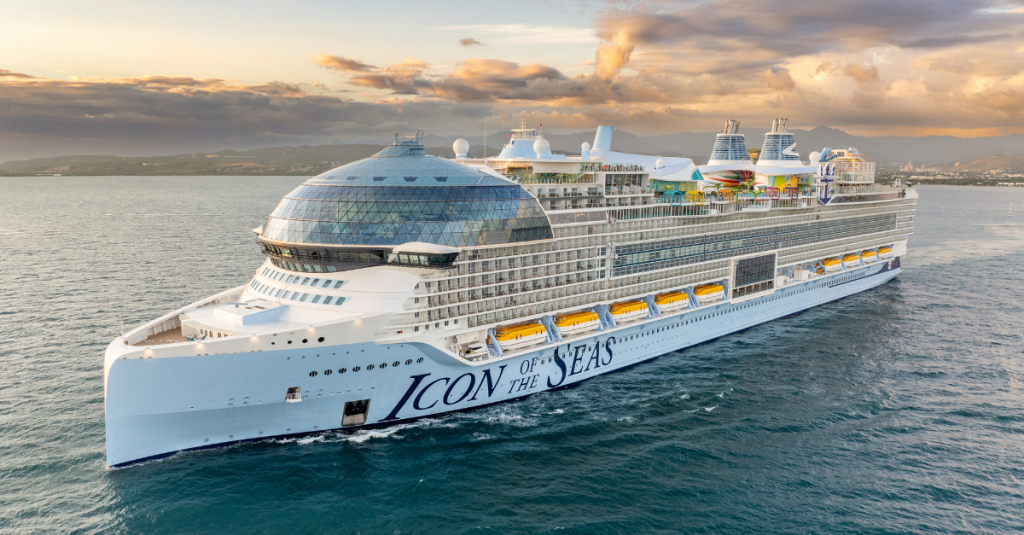In a surprising turn of events, Royal Caribbean Group’s third-quarter results surpassed their original forecasts. The company’s total revenues reached an impressive $4.9 billion, significantly outstripping earlier guidance. This achievement was driven by stronger pricing strategies and a burgeoning demand for cruise experiences. The company maintains an optimistic outlook for the future, despite potential challenges ahead.
The latest financial outcomes have prompted an upward revision of Royal Caribbean’s profit guidance for both the fourth quarter and full year. With a substantial increase in adjusted earnings per share anticipated, the company’s strategic approach appears to be paying off. Continued demand and effective cost management are key elements, reinforcing the positive trajectory predicted for upcoming periods.
Earnings and Revenue Growth
Royal Caribbean Group has exceeded expectations with its third-quarter financial results. The cruise line reported total revenues of $4.9 billion, attributed to improved pricing and strong demand for late bookings. The company also recorded an impressive adjusted EBITDA of $21 billion, enhancing its financial standing considerably. Such robust figures point to an effective strategy in capturing market interest and managing operational costs efficiently.
Profit Guidance Upgraded
In response to their third-quarter achievements, Royal Caribbean has revised its future profit projections. The fourth-quarter adjusted earnings per share are now forecasted to be between $1.40 and $1.45, despite potential challenges such as Hurricane Milton.
Meanwhile, the full-year earnings per share is expected to increase by 71%, reaching between $11.57 and $11.62. This revised outlook is largely due to increased pricing expectations and a strong performance throughout the third quarter, which bolsters confidence in the company’s strategic direction.
CEO’s Vision for 2025
Royal Caribbean’s president and CEO, Jason Liberty, expressed optimism about the company’s future prospects.
“Our exceptional third quarter results and increased full-year expectations reflect the robust demand for our differentiated vacation experiences,” Liberty stated. His comment underscores the belief that the cruise market will continue on an upward trajectory, supported by moderate capacity and yield growth along with stringent cost management.
Liberty further noted that while planning for 2025 is still in its early stages, there is every expectation that earnings per share will begin with a $14 handle. This outlook signals a strong belief in continued market resilience and the company’s strategic planning capability.
Demand Trends
The cruise industry is witnessing heightened consumer interest, contributing to Royal Caribbean’s success.
Royal Caribbean attributes these favourable results to a combination of strategic pricing, effective marketing, and an increase in consumer confidence. As people resume travelling, cruises are regaining their allure, solidifying the company’s market presence.
The ‘elevated demand patterns,’ as highlighted by Liberty, show a market shift as cruise experiences become a preferred choice for vacationers. This trend positively impacts revenues and fuel ongoing optimism for future quarters.
Operational Efficiency
Operational efficiency has been a cornerstone of Royal Caribbean’s strategy, contributing to their financial achievements.
By maintaining strong cost disciplines and optimising operational processes, the company has minimised expenses while maximising revenue generation. This approach has proven effective in navigating economic uncertainties.
Such efficient operational management not only boosts current profitability but also lays a firm foundation for sustainable growth. As Royal Caribbean continues to refine its operations, it can further enhance its competitive edge in the industry.
Future Outlook
Looking ahead, Royal Caribbean is set to build upon its third-quarter success.
With continued demand, the company projects consistent financial growth into 2025. The proactive revision of profit margins and strategic capacity management signal a forward-thinking approach aimed at sustaining performance.
As the company prepares for future challenges, balanced growth and innovation will be critical. Royal Caribbean’s strategic planning ensures they remain a leader in the cruise industry, adapting to market changes while pursuing new opportunities.
Market Position
Royal Caribbean’s market position remains strong, reinforced by its recent financial results.
The company’s focus on providing unique vacation experiences has distinguished it from competitors, attracting a loyal customer base. This strategy is pivotal in maintaining their dominant market presence.
Strengthened by an effective marketing strategy, Royal Caribbean is well-positioned to capitalise on emerging trends within the travel industry. As consumer preferences evolve, the company’s ability to adapt quickly underscores its leadership.
Challenges and Resilience
Despite external challenges, Royal Caribbean has demonstrated resilience.
Economic headwinds and natural events like Hurricane Milton present potential obstacles; however, the company’s strategic approach has effectively mitigated such risks.
By anticipating potential market disruptions and crafting adaptive strategies, Royal Caribbean safeguards its financial health. This foresight enables them to weather challenges while continuing to deliver exceptional service to customers.
Strategic Investments
Investments in innovative technologies and services are part of Royal Caribbean’s future plans.
These investments aim to enhance customer experience and operational efficiencies, aligning with the company’s growth objectives.
Strategic investments in new ships and onboard technologies are expected to attract a broader audience, ensuring that Royal Caribbean remains at the forefront of innovation within the cruise industry.
Royal Caribbean’s stellar third-quarter results reflect a robust business model and strategic foresight. The company’s ability to capitalise on market trends while managing costs effectively confirms its strong market position. With optimistic projections for the future, Royal Caribbean is poised to maintain its leadership in the cruise industry, driven by innovation and demand.

